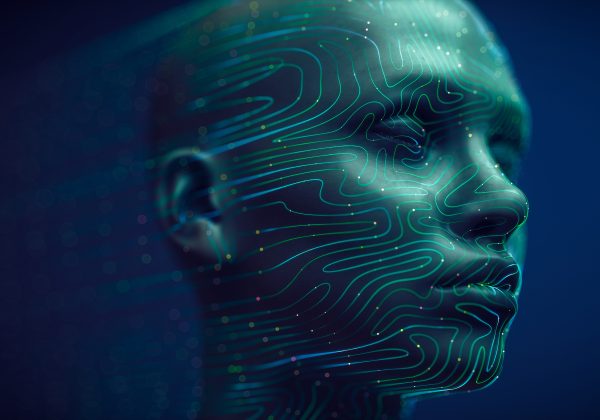Ram Charan: Harnessing the Fourth Industrial Revolution (4IR)
It’s no secret that the Fourth Industrial Revolution (4IR) is fundamentally reshaping political, social, and economic orders. The convergence of digital technologies and life sciences—including artificial intelligence (AI), robotics, 3D manufacturing, digital twins (virtual representations of physical objects or systems), quantum computing, the Internet of Things (IoT), biotech, and nanotech—has created incredible opportunities.
It has also created immense challenges.
Four years ago, IQ examined the birth of 4IR in an article that presented insights from thought leaders. Recently, we caught up with leadership guru and best-selling author Ram Charan, author of Rethinking Competitive Advantage: New Rules for the Digital Age, and asked for his views on how 4IR is evolving, what opportunities and challenges it presents, and what business leaders should focus on in order to navigate radically changing connection points with consumers.
IQ: How is the Fourth Industrial Revolution playing out within the business world?
Charan: Unfortunately, a lot of CEOs have not yet comprehended that this is a different ballgame with a different set of rules. They don’t understand that it’s adapt and advance or wither. Amazon has been out in front, along with innovative companies offering digital services and features through apps. However, the vast majority of companies, especially in manufacturing, logistics and B2B spaces, remain in the very early stages of adoption. Many of them aren’t doing much more than automating internal processes that may deliver incremental cost reduction.
“There’s a perception that digital transformation is too expensive, it takes too long and there’s no guarantee of an adequate return. There’s a lack of understanding about how to use it… As a result, organizations slowly get further and further behind until the practical and technical debts are too great to overcome.” —Ram Charan, author of Rethinking Competitive Advantage: New Rules for the Digital Age
IQ: What are the most common stumbling blocks to 4IR adoption?
Charan: There’s a perception that digital transformation is too expensive, it takes too long and there’s no guarantee of an adequate return. There’s a lack of understanding about how to use it and apply algorithmic engines [specific instructions running within software] to unlock value. As a result, organizations slowly get further and further behind until the practical and technical debts are too great to overcome.
IQ: On the other hand, what fuels success in a 4IR world?
Charan: A common theme among top-tier companies is they recognize that it all begins with the creation of an algorithm engine. Machine learning is a set of algorithms. Robotics is driven by algorithms. Speech processing and machine vision are driven by algorithms. The IoT is driven by algorithms. The combination of algorithms and software introduce enormous possibilities.
IQ: An algorithm engine is a core set of mathematical formulas that unlock value by tying together numerous processes and actions and then acting on them based on a wide range of conditions. Yet algorithms often seem like mysterious black boxes. How can business leaders understand their role in unlocking opportunities in a 4IR world?
Charan: It’s important to recognize that algorithms are nothing new and they aren’t limited to computers. The Babylonians used them; so did the Iranians in the 11th century. But computers and data science have advanced the concept to a different level. When Larry Page and Sergey Brin wrote the Google PageRank algorithm, it fundamentally changed computing. Today, an algorithm is a mathematical formula that unlocks value through an output. If algorithms are stitched together the right way, they are like electricity. They change a business and the world. Share on X
IQ: The best AI algorithms continually learn and evolve to the point where they can understand a person and even predict behavior. Why is this so important?
Charan: Think of Amazon, Netflix, and Uber. Their skill is to design and apply an algorithmic engine that caters to each individual personalization. They can learn and then predict behavior or create value from previously disconnected data points through machine learning. They can also scale easily. This expands the market exponentially. Suddenly, with algorithmically driven digital technology, you can scale the content and the user base very fast and at a much lower price point.
IQ: What does it take to become a 4IR success story?
Charan: The key is to combine all these digital technologies in new and innovative ways—and use the algorithms to put the technology to work and automate things. Apple and Amazon are masters at this. Apple has 1.6 billion phones and customers around the globe. Amazon is putting other retailers out of business. With algorithms and the right combination of digital technologies, they can address the specific needs of individuals and businesses like no one else.
IQ: What’s required to produce a viable 4IR strategy?
Charan: The starting point is to recognize that you must have the right data for algorithms to deliver high-value results. Are you capturing the right things? Are you measuring the right things? Then you have to examine the ecosystem you’re working with. Are you combining internal data and external data effectively? This leads to spotting patterns that can improve processes, including product development.
But it’s also important to rethink and revamp products and services. That’s where something like the IoT comes into play. It can deliver deep and rich data. There’s still another component: Executives and managers must understand algorithmic engines and how they create value from data. Today, small startups that understand 4IR concepts can have an advantage. The barriers to entry are low—and there are investment firms willing to put big money behind them.
IQ: There are a lot of concerns about the Fourth Industrial Revolution putting massive numbers of people out of work. What are your thoughts, and what should executives stay focused on?
Charan: The number one thing to recognize is that industrial revolutions have happened. There is always a dislocation of jobs and a need for entirely new and different skillsets. It’s happening again. The key is for individuals to learn new skills. As things become even more automated, we will need people with more skills. Companies can play a role in promoting more advanced learning and skills in society.
IQ: There are concerns that various digital technologies rooted in AI will be misused and abused. There are already cases of machine learning becoming racist or sexist based on input data. This has led to an ethical AI movement that aims to create standards for the positive use of 4IR technologies. What are your thoughts about how to approach this topic?
Charan: AI algorithms are never perfect. They have a design bias, and they can skew real-world results because the data reflects human beings and human biases. The question is: What do you do about this? There must be greater awareness related to the design and use of algorithms. Leadership must play an active role in setting the tone and articulating the importance of ethical AI. This includes personal privacy, which is emerging as a very important issue.
IQ: What are your final thoughts to leaders about how to move forward in a 4IR world?
Charan: You have to understand your purpose as a company and what your value proposition is. You have to focus on what benefits you deliver to society. If you don’t have customers, you don’t have a business. So, this ties into everything, including how to approach digital technologies and 4IR. The companies that truly understand this concept will generate enormous market value. Ultimately, you have to get past fear and dive into these technologies. If you’re not moving forward, you’re taking a bigger risk.



